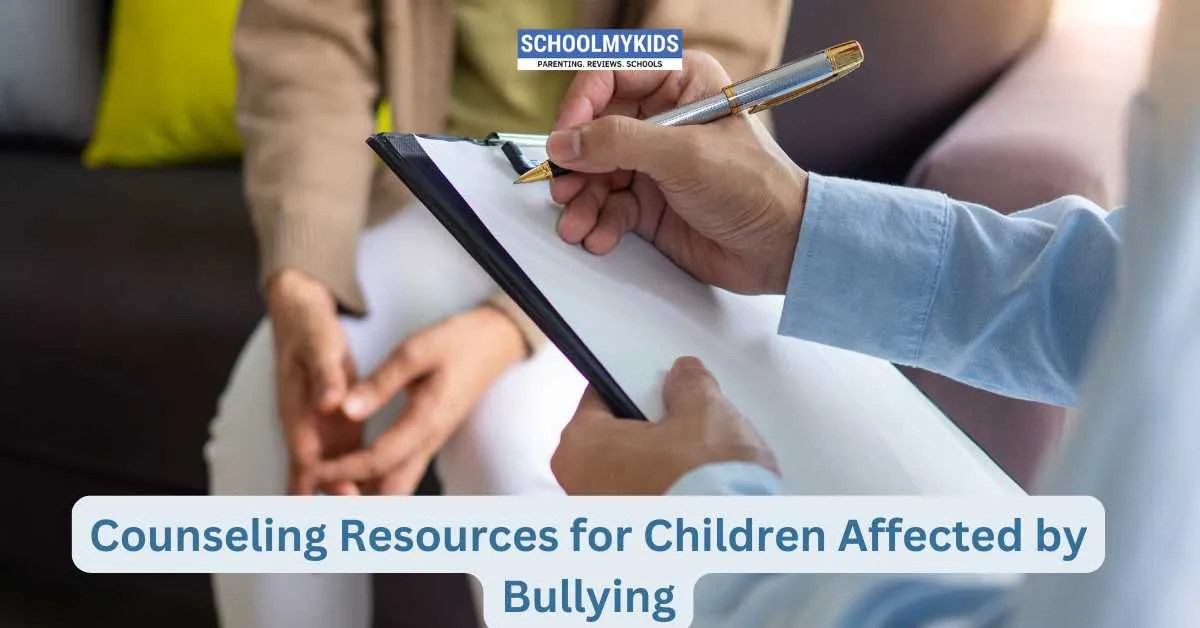Bullying can have a profound and lasting impact on a child’s emotional and psychological well-being. When a child is subjected to bullying, the consequences can include anxiety, depression, low self-esteem, and academic challenges. Counseling offers a pathway for recovery, enabling children to process their experiences, build resilience, and develop effective coping strategies. This article explores the various counseling resources available for children affected by bullying, including school-based services, private therapy options, online counseling, and community support programs.
1. The Importance of Counseling in Bullying Situations
Counseling can play a pivotal role in mitigating the effects of bullying by addressing both the emotional and behavioral consequences. Research indicates that children who receive timely professional support are better equipped to manage stress and regain confidence. Counseling can help children:
- Process traumatic experiences related to bullying
- Develop healthy coping mechanisms and resilience
- Improve academic focus and social interactions
- Enhance self-esteem and emotional regulation
Early intervention is essential in preventing the long-term negative outcomes associated with bullying.
2. School-Based Counseling Services
Schools are often the first line of defense when it comes to addressing bullying. Most educational institutions employ school counselors or psychologists who are trained to assist students dealing with emotional distress.
2.1 Benefits of School Counselors
- Accessibility: School counselors are readily available and provide immediate support during school hours.
- Familiarity: Counselors are knowledgeable about the school environment and can identify patterns or issues related to bullying.
- Confidentiality: Students can discuss their experiences in a safe and private setting.
- Group Interventions: Many schools offer peer support groups or social-emotional learning programs that foster a sense of belonging and community.
2.2 How to Utilize School Counseling
Parents should encourage their children to seek help from the school counselor if they notice signs of distress. Regular communication with school staff can also help monitor progress and ensure that bullying incidents are being addressed appropriately.
3. Private Therapy Options
For children who require more intensive or specialized support, private therapy may be a suitable option. Licensed therapists, child psychologists, and counselors offer individualized sessions tailored to address the specific needs of the child.
3.1 Types of Therapy for Bullied Children
- Cognitive Behavioral Therapy (CBT): CBT helps children identify and change negative thought patterns, replacing them with constructive coping strategies.
- Trauma-Focused Therapy: Designed for children who have experienced severe bullying, this approach addresses symptoms of trauma and helps rebuild emotional stability.
- Play Therapy: Particularly effective for younger children, play therapy allows them to express their feelings through play, art, and storytelling.
- Family Therapy: Involving the entire family can improve communication and support mechanisms at home, ensuring that the child receives consistent care and reinforcement.
3.2 Finding a Private Therapist
Parents can locate private therapists by consulting pediatricians, using directories such as Psychology Today, or seeking referrals from trusted community sources. It is essential to choose a professional who has experience dealing with bullying-related trauma and who uses evidence-based approaches.
4. Online Counseling and Digital Resources
In the digital age, online counseling services have emerged as a flexible and accessible option for many families. These services connect children with licensed professionals through video conferencing, chat, or secure messaging platforms.
4.1 Advantages of Online Counseling
- Convenience: Sessions can be conducted from the safety and comfort of home.
- Accessibility: Online platforms are particularly useful for families in remote or underserved areas.
- Flexibility: Digital therapy can often accommodate busy schedules and provide more frequent support if needed.
4.2 Examples of Online Counseling Services
- BetterHelp for Teens: Provides video, phone, and chat-based sessions tailored for adolescents.
- Talkspace for Teens: Offers text-based therapy along with scheduled live sessions.
- 7 Cups: A platform that offers anonymous chat support with trained listeners, along with access to professional therapists.
- Specialized Mobile Apps: Applications like Calm Harm and others are designed to help manage emotional distress and build coping skills.
When opting for online counseling, it is crucial to ensure that the provider is licensed, experienced in child therapy, and adheres to strict confidentiality standards.
5. Community Support Programs and Nonprofits
Community organizations and nonprofit groups often provide free or low-cost counseling services specifically designed for children dealing with bullying. These programs not only offer individual counseling but also host group therapy sessions and workshops aimed at fostering resilience and social skills.
5.1 Notable Community Resources
- PACER’s National Bullying Prevention Center: Offers educational resources, support groups, and advocacy information.
- The Trevor Project: Focuses on supporting LGBTQ+ youth who experience bullying, providing crisis intervention and counseling.
- Childline (UK): Provides a 24/7 helpline and online counseling services for children facing bullying and other crises.
- Local Youth Centers: Many community centers have programs that include counseling services, peer support groups, and social skills training.
5.2 How to Access Community Resources
Parents should inquire at local community centers, libraries, or schools about available support programs. Local government and nonprofit websites often list resources and contact information for counseling services dedicated to youth.
6. Supporting Your Child Through Counseling
Parental support is a critical component of the therapeutic process. Even as professionals work with your child, your role as a parent can significantly influence their recovery and resilience.
6.1 Ways to Support Your Child
- Encourage Open Dialogue: Maintain regular conversations about their feelings and experiences, and be receptive without judgment.
- Reinforce Positive Behavior: Celebrate small achievements and progress, reinforcing the positive changes brought about by counseling.
- Attend Family Therapy: If recommended, participate in family therapy sessions to improve communication and support systems at home.
- Monitor Progress: Keep a record of changes in behavior and academic performance, and maintain ongoing communication with the therapist or counselor.
6.2 Educate Yourself
Understanding the therapy process can empower you to better support your child. Attend informational sessions, read relevant literature, and consider joining parent support groups to share experiences and strategies.
Conclusion
Counseling is a vital resource for children affected by bullying. Whether through school-based services, private therapy, online counseling, or community support programs, professional help can provide the necessary tools for recovery and resilience. As a parent, it is essential to explore all available options and support your child through their therapeutic journey. Early intervention and consistent support can help children process their experiences, build confidence, and develop the skills needed to thrive in the face of adversity.









Be the first one to comment on this story.